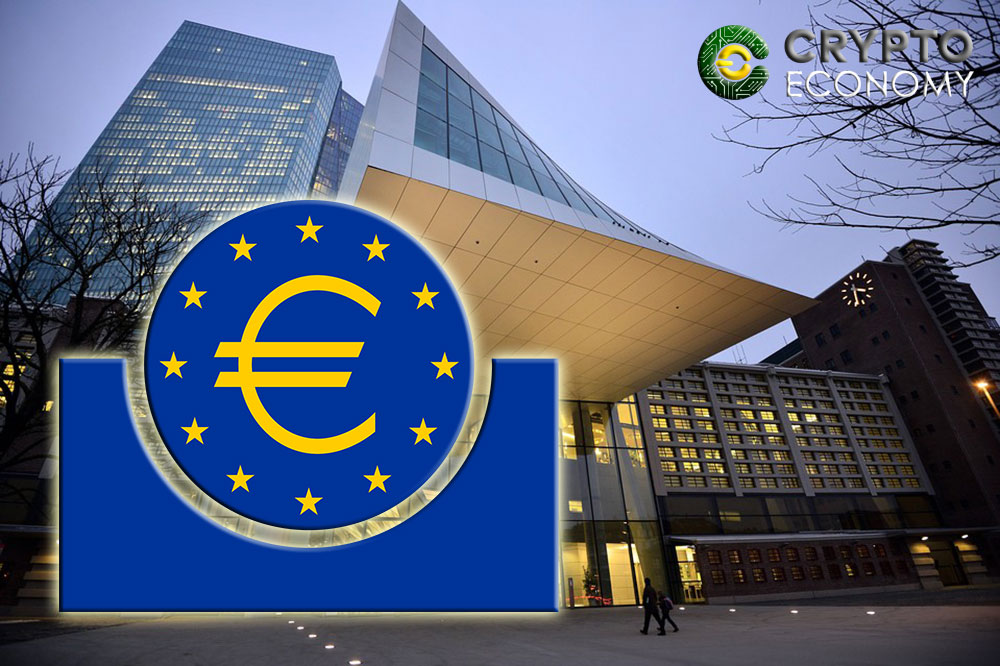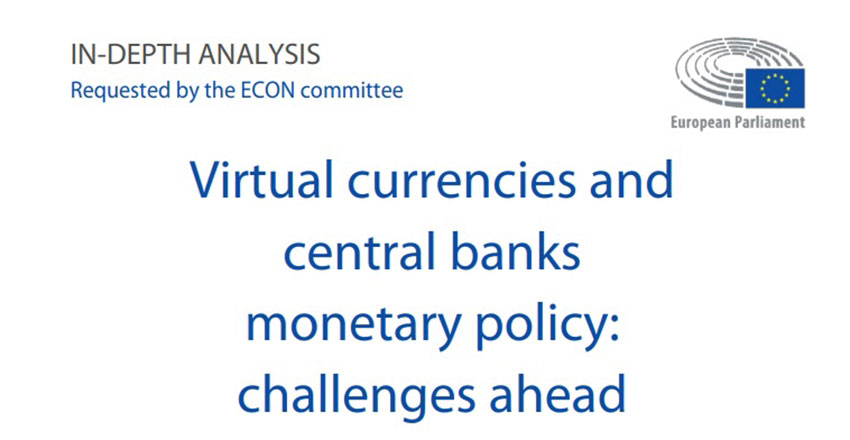The committee of the European parliament held another monetary dialogue during the late hours of 9 July, 2018. The dialogue is a quarterly conference which mainly involves a European Union monetary policy report from the president of the European Central Bank(ECB).
Based on the ECB’s statements concerning cryptocurrencies in recent years, the organizations standpoint seems to be changing as cryptocurrencies are establishing a solid foothold in the financial space. A quick backward time travel to last year leads us to a point where the ECB was reluctant to get involved in cryptocurrency issues, as we witnessed the ECB president openly stating that cryptocurrencies weren’t a thing “in their powers to prohibit and regulate.” This denounced any intention of influence from the EU. However, recent statements showed an inclination and openness to discuss cryptocurrency issues as shown through its recommendation to European Banks to segregate their crypto activities from traditional practices.
Since the inception of the monetary dialogs in 2012, any topic related to virtual currencies wasn’t given a separate space for discussion until the most recent session held on the 9th of July. The panel discussed the topic titled: ”Virtual Currencies and Central Banks Monetary Policy: challenges ahead.” The panel used briefing papers from renowned individual researchers and institutions to lead it through the crucial aspects of the discussion.
The following are the general arguments of the papers and how they can possibly effect on the European Central Bank’s overall standpoint concerning cryptocurrencies. However, it is important to note that the arguments and the views expressed in the papers should not be seen as the official standpoint of the ECB or the EP.
VC’s are bound to be part of the future and should be embraced while being kept under regulation.
The first report was from Lukasz Janikowski and Marek Dabrowski and it came under the title “Virtual currencies and central bank’s monetary policy: challenges ahead.’’ The two researchers hail from the Center for Social and Economic Research which is a standalone economic and public policy research institution, headquartered in Warsaw, the capital of Poland.
The dominant message from the paper highlights the virtual currencies enormous technological advantage which include extremely more affordable and fast transactions which evade the limitations placed by international borders. The paper says that, ”Unlike their 18th and 19th century paper predecessors, VCs are used globally, disregarding national borders.”
On a slightly negative side, the paper acknowledged that just like traditional money, VC’s are not infallible and it clearly highlights the challenges that come with using cryptocurrencies.
“VCs should be treated by regulators as any other financial instrument, proportionally to their market importance, complexity, and associated risks. Given their global, trans-border character, it is recommended to harmonize such regulations across jurisdictions. Investment in VCs should be taxed similarly to investment in other financial assets.”
In the end, the paper seems to settle on the insight that, in the short term, virtual currencies will not necessarily pose strong competition to traditional currencies as it’s been already demonstrated by their rather marginal role. On the other hand, there is a high likelihood that in the long run, VC’s will be a worthwhile competitor due to technological advancements.
“The economists who attempt to dismiss the justifications for and importance of VCs, considering them as the inventions of ‘quacks and cranks,’ a new incarnation of monetary utopia or mania, fraud, or simply as a convenient instrument for money laundering, are mistaken. VCs respond to real market demand and, most likely, will remain with us for a while.”
University College Dublin report: Cryptocurrencies cannot replace traditional currencies.
The second paper explored whether VC’s have the ability to replace traditional currencies or simply another possibility bound to fade with time. Prof Karl Whelan, from the University of Dublin, authored the paper which was titled “Should Central Banks Be Concerned About Virtual Currencies?”
In general terms, Whelan represents a more skeptic view of the possibilities associated with virtual currencies. The professor challenges the cryptocurrency space with an argument that concludes that VC’s are far much inferior to traditional money from both a historical and technological standpoint. From a technological point of view, Whelan points out some of the well-known and longstanding issues associated with VC’s such as volatility and security concerns. He also counters claims of VC’s superior speed of transactions with the observation that banks are also fast embracing similarly efficient technology to enhance the speed of transactions.
The Kiel Report: Cryptocurrencies aren’t necessarily substitutes but agents of stability.
The third report represented a view that does not adopt the idea of having cryptocurrencies operating independently but rather recognizes them as a way of enhancing the stability of the central banking system.
In general, the paper showed that cryptocurrencies cannot replace traditional currencies because the current technology is not advanced enough to handle the volume of transactions achieved by traditional currencies. Furthermore, the researchers argue that conducting all transactions through Cryptocurrencies as a substitute would be extremely expensive as compared to traditional currencies. However, the report continues with a more favorable regard of the VC’s by firmly asserting that VC’s would help to stabilize the banking system through providing more dependable sources of funds, rather than deposits.
“To avoid recurrent instability of the banking system, commercial banks would need to come up with more reliable funding sources than deposits. As the fractional reserve character of the current banking system can be a major source of instability, such a disruptive change is not necessarily a bad development, but could finally pave the way for a more stable financial system.”
The Bruegel report: Cryptocurrencies are harmless, but can coexist positively with central banks
The Bruegel report proved to be a VC’s favorable report that expressed the views of a team of economics researchers based in Brussels.
The report started by acknowledging that cryptocurrencies may not be have the capacity to replace traditional currencies presently due to volatility and lack of the necessary technology but it proceeds to express the confidence in the likelihood that these problems will be resolved as cryptocurrency systems continue to evolve.
Furthermore, the researchers continued to concede to the idea that cryptocurrencies and state-issued money will coexist, and they deem it a good scenario because VC’s could remove the central banking systems monopoly in the finance space.
Lastra and Jason: Virtual currencies are a threat to traditional financial systems.
The last report was perhaps the most extensive and it originated from two renowned economics scholars, Rosa Maria Lastra and Jason Grant.
The two scholars embarked on an insight into various cryptocurrencies and then tackled the central issues such as the need to establish regulations to govern VC’s, possible financial crimes and highlighted the need for ECB to define its role when it comes to Cryptocurrencies.
To sum it all up, the paper came out clearly and declared that,
“VCs could create risks to the stability of the financial system if VC markets continue to grow at the current pace and continue to interact and entangle with the regulated financial system.”












